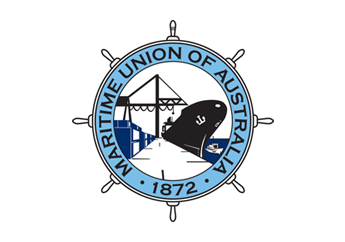
Major flaws in Australia's biosecurity, shipping, and health and safety regulations have been highlighted after six crew members on the livestock vessel Al Kuwait tested positive for coronavirus, forcing local maritime workers who boarded the vessel into self-isolation.
The vessel, owned by Kuwait Livestock Transport & Trading, was allowed to dock in Fremantle last Friday despite the ship's master two days earlier notifying the Federal Department of Agriculture - which oversees quarantine measures on the waterfront - that several crew members were sick.
The Maritime Union of Australia said the latest incident highlighted that the regulatory failures that allowed the Ruby Princess to dock in Sydney, starting the nation's largest COVID-19 cluster, had still not been properly addressed.
MUA National Secretary Paddy Crumlin said the union had repeatedly highlighted the COVID-19 risks posed by inadequate quarantine and shipping regulations, first writing to Prime Minister Scott Morrison in January to outline the problems with biosecurity measures on the waterfront.
"This latest coronavirus cluster reveals that five months into this crisis, and after repeated warning from the union and others in the industry, the Australian Government has still failed to properly address the major quarantine and biosecurity threats posed by international shipping," Mr Crumlin said.
"The dreadful lack of coordination between Federal and State agencies, with information not passed on in a timely manner to the port workers that came into direct contact with crew members on the vessel, demonstrates that the lessons of the Ruby Princess debacle still haven't been learnt.
"The fact that this vessel notified Australian authorities two days before arrival of sickness onboard, but that information wasn't passed on before it docked, shows the current system is broken.
"The Federal Government needs to urgently address these failures, in collaboration with State and Territory Governments, to address this serious and ongoing threat to public health and safety.
"In particular, we need immediate improvements to communication and collaboration between agencies, including the Agriculture Department, Border Force, Health Department, Australian Maritime Safety Authority, and port authorities.
"Currently, the quarantine processes imposed on an Australian seafarer seeking to join an Australian registered vessel in WA from another state are far stricter and more onerous than the what is required of crews arriving on international vessels, including those coming from coronavirus hotspots.
"This flawed regulatory system not only threatens to allow coronavirus outbreaks into the broader community, it threatens Australia's supply chains.
"If an outbreak of COVID-19 occurs among the limited number of pilots in a port, or wharfies and other waterfront workers, the port would quickly grind to a halt, forcing all trade to stop completely."
Mr Crumlin said the broader regulation of international shipping, which is responsible for 97 per cent of Australia's imports and exports, remained seriously inadequate.
"Australian shipping has suffered decades of neglect, with local ships replaced by foreign-owned flag of convenience vessels employing vulnerable seafarers and paying them as little as $2 per hour," he said.
"The nation's biosecurity system relies on these crews self-declaring any health issues, with no proactive health checks before vessels are allowed to dock.
"It is clear that many of these vessels will not risk the delays and financial losses caused by self-declaring health issues, putting Australian maritime workers, their families, and the broader community at risk of COVID-19 infections.
"Addressing these risks requires an end to decades of deregulation, with proactive regulation and inspections to ensure all vessels operating in Australian waters abide by appropriate biosecurity, safety, environmental and industrial laws."






